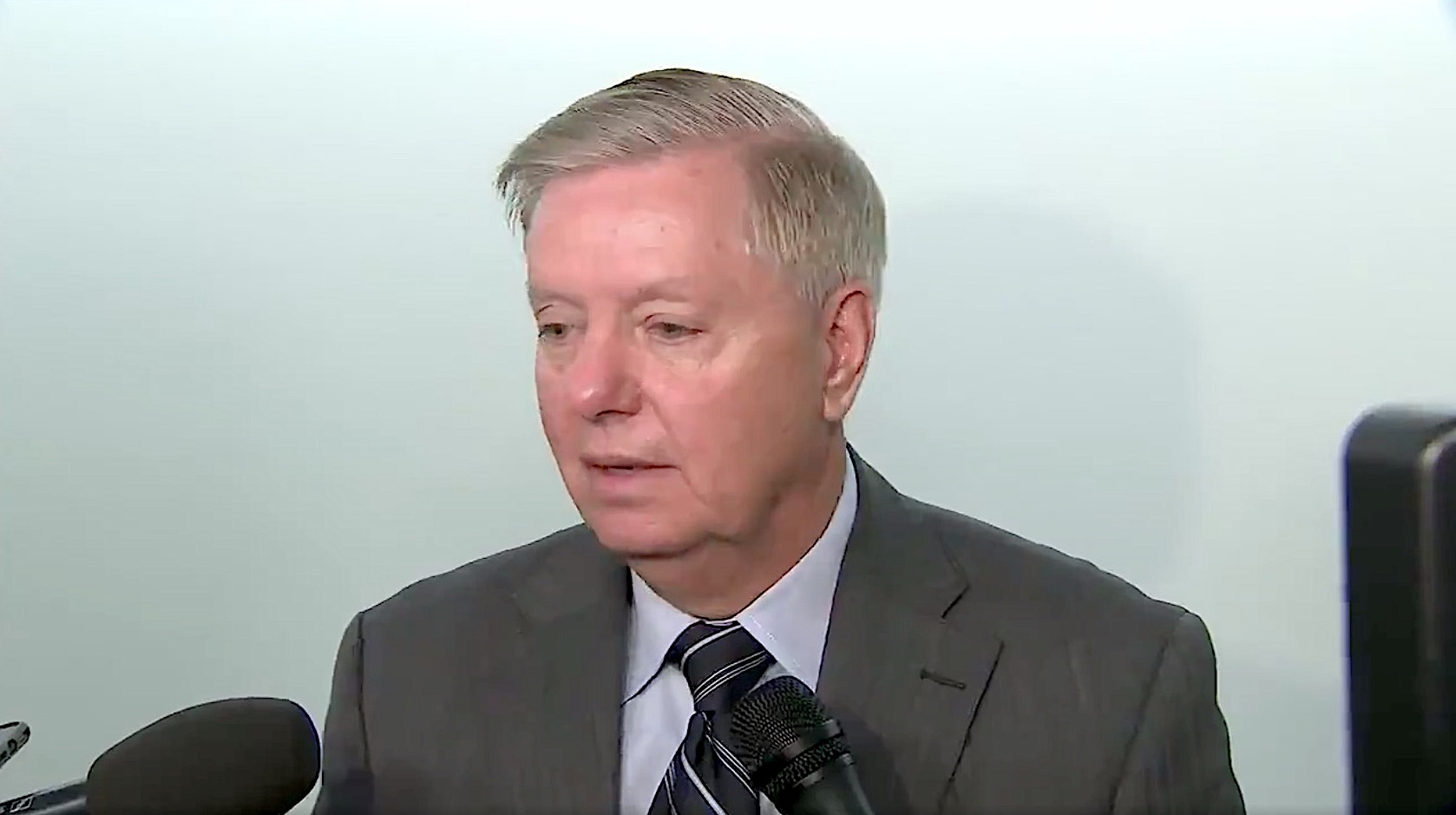Lindsey Graham won't read impeachment depositions with quid pro quo evidence he said doesn't exist


A free daily email with the biggest news stories of the day – and the best features from TheWeek.com
You are now subscribed
Your newsletter sign-up was successful
House Democrats released hundreds of pages of transcribed impeachment depositions Tuesday, including testimony from Gordon Sondland, the U.S. ambassador to the European Union and a key player in President Trump's Ukraine policy. Sondland, who testified two weeks ago that he did not recall U.S. military aid for Ukraine being conditioned on Kyiv opening investigations on former Vice President Joe Biden and his son Hunter, changed his testimony in a "supplemental declaration" submitted Monday.
Sondland declared Monday that he did in fact tell a top aide to Ukrainian President Volodymyr Zelensky that "resumption of U.S. aid would likely not occur until Ukraine provided the public anticorruption statement that we had been discussing for many weeks." He said Trump had not directly told him to offer this quid pro quo, but there was no other "credible explanation for the suspension" of the military aid. Five other administration officials have described a similar no-cash-unless-investigation scheme in their testimony.
Sen. Lindsey Graham (R-S.C.), the chairman of the Senate Judiciary Committee, told reporters on Tuesday that he isn't going to read any of the transcripts being released by House impeachment investigators, including Sondland's. "I've written the whole process off," he told CBS News. "I think this is a bunch of B.S." That's too bad, because Graham had some questions that Sondland's testimony might answer.
The Week
Escape your echo chamber. Get the facts behind the news, plus analysis from multiple perspectives.

Sign up for The Week's Free Newsletters
From our morning news briefing to a weekly Good News Newsletter, get the best of The Week delivered directly to your inbox.
From our morning news briefing to a weekly Good News Newsletter, get the best of The Week delivered directly to your inbox.
Graham also told Axios' Jonathan Swan in October that "if you could show me that, you know, Trump actually was engaging in a quid pro quo, outside the phone call, that would be very disturbing." And Graham isn't the only Trump supporter who would be disturbed if he read the revised testimony from Sondland, a Trump donor seen as more loyal to the president than the career diplomats and national security officials whose testimony he is now corroborating.
You can, of course, find something both "off the rails wrong" and not impeachable.
A free daily email with the biggest news stories of the day – and the best features from TheWeek.com
Peter has worked as a news and culture writer and editor at The Week since the site's launch in 2008. He covers politics, world affairs, religion and cultural currents. His journalism career began as a copy editor at a financial newswire and has included editorial positions at The New York Times Magazine, Facts on File, and Oregon State University.
-
 The broken water companies failing England and Wales
The broken water companies failing England and WalesExplainer With rising bills, deteriorating river health and a lack of investment, regulators face an uphill battle to stabilise the industry
-
 A thrilling foodie city in northern Japan
A thrilling foodie city in northern JapanThe Week Recommends The food scene here is ‘unspoilt’ and ‘fun’
-
 Are AI bots conspiring against us?
Are AI bots conspiring against us?Talking Point Moltbook, the AI social network where humans are banned, may be the tip of the iceberg
-
 Judge blocks Hegseth from punishing Kelly over video
Judge blocks Hegseth from punishing Kelly over videoSpeed Read Defense Secretary Pete Hegseth pushed for the senator to be demoted over a video in which he reminds military officials they should refuse illegal orders
-
 Trump’s EPA kills legal basis for federal climate policy
Trump’s EPA kills legal basis for federal climate policySpeed Read The government’s authority to regulate several planet-warming pollutants has been repealed
-
 House votes to end Trump’s Canada tariffs
House votes to end Trump’s Canada tariffsSpeed Read Six Republicans joined with Democrats to repeal the president’s tariffs
-
 Bondi, Democrats clash over Epstein in hearing
Bondi, Democrats clash over Epstein in hearingSpeed Read Attorney General Pam Bondi ignored survivors of convicted sex offender Jeffrey Epstein and demanded that Democrats apologize to Trump
-
 El Paso airspace closure tied to FAA-Pentagon standoff
El Paso airspace closure tied to FAA-Pentagon standoffSpeed Read The closure in the Texas border city stemmed from disagreements between the Federal Aviation Administration and Pentagon officials over drone-related tests
-
 Judge blocks Trump suit for Michigan voter rolls
Judge blocks Trump suit for Michigan voter rollsSpeed Read A Trump-appointed federal judge rejected the administration’s demand for voters’ personal data
-
 US to send 200 troops to Nigeria to train army
US to send 200 troops to Nigeria to train armySpeed Read Trump has accused the West African government of failing to protect Christians from terrorist attacks
-
 Grand jury rejects charging 6 Democrats for ‘orders’ video
Grand jury rejects charging 6 Democrats for ‘orders’ videoSpeed Read The jury refused to indict Democratic lawmakers for a video in which they urged military members to resist illegal orders
